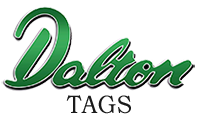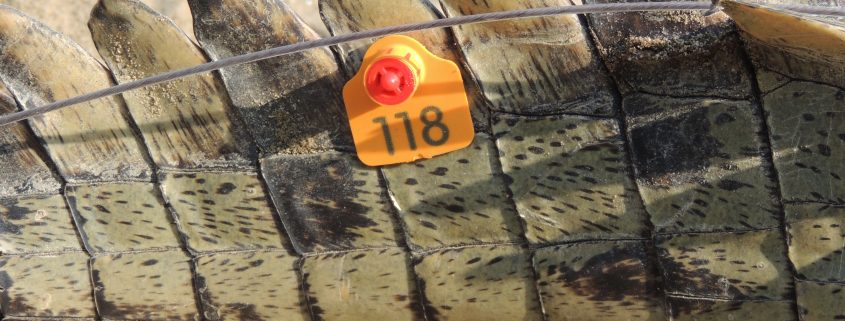Nottinghamshire tag company helps track endangered crocodiles
Dalton Tags, an animal ID and tag producer out of Newark Nottinghamshire, regularly gets requests to make tags for cattle, sheep and goats.
Recently, the company received an unusual request from the Zoology Department out of the University of Oxford.
They wanted tags for crocodiles — and an extremely rare one at that.
The Gavialis gangeticus or Gharial, a species of crocodile on the critically endangered species list, resides in inland freshwaters and wetlands of Nepal and parts of India. The gharial is one of the largest species of crocodiles in the world, measuring up to 5-6 meters long. The species possesses a particularly unique long and slender snout with up to 110 razor-sharp teeth.
Unfortunately, the gharial was the first species of crocodilian to be labeled critically endangered with less than 182 known crocodiles left in 2006.
Currently, the biggest threat to the gharial is habitat loss due to people clearing wetland areas for firewood or farmland. People also take the crocodile’s eggs for medicinal purposes and kill male gharial for there snout as it is believed that part of it is an aphrodisiac. The gharial also face issues with fishing as they get caught in gil nets and die trying to get out. In 2007, the species faced another hardship as gout wiped out more than 110 crocodiles.
To help increase the species chance of survival, many conservation efforts have been in effect in recent years. A group called the Gharial Multi-Task Force, regional and international crocodilian specialists, are researching and trying to keep this species from going extinct. To help study endangered animals, conservationist need to collect data.
The Zoology Department at Oxford University wanted to tag the endangered crocodile species. The goal of tagging the crocodiles is to study and collect spatial and reproductive ecology data inform ongoing conservation efforts on the species, according to Phoebe Griffith, who is researching the Gavialis gangeticus. Griffith researches the species through Oxford University’s Wildlife Conservation Research Unit, WildCRU and Zoological Society London’s Institute of Zoology. Griffith and the research teams work to conduct research on the population of the endangered species with a catch-and-release tagging method.
In Griffith’s research profile, she notes that she is working with the Zoological Society London to conduct a study on the ecology of gharial in the Rapti and Narayani rivers in Chitwan National Park, Nepal.
“In particular, we aim to conduct post-release monitoring of gharial that are captive-reared as part of the National Park’s ongoing conservation efforts for the species, and compare this to ecological data we are collecting on free-living gharial,” Griffith wrote. “Using telemetry, observational data, camera trapping and local ecological knowledge we aim to build a strong evidence base for future work in Nepal to conserve this Critically Endangered species.”
General Manager Diane D’bouk said that “Dalton tags are regarded as the best in the market and are extremely strong, and that’s why the University of Oxford chose our Flexo Tags for this purpose.“
“The tags are applied once a hole has been drilled into the tail scutes,” Diane said. “The scutes are extremely tough and almost impossible to penetrate hence the need for a hole to be drilled first!”
During the university’s research, the team tagged five of the gharial with plans to capture at least 15 more throughout the next week. Dalton Tags has been chosen for other conservation efforts, including tagging sharks, seals, Artic foxes and turtles.
Diane said “Dalton Tag’s Flexo tags were ordered with a sequential number format so every tag has a unique number. Now all of the crocodiles have their very own number and can be tracked and monitored”



